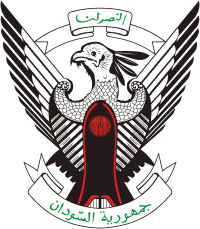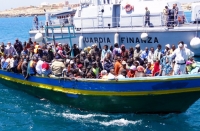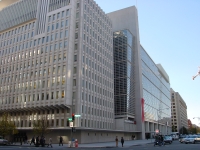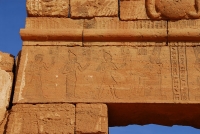Sudan: Sudan Outlook for 2013-14
2013/09/12

The country (Sudan) is situated in Northern Africa, bordering the Red Sea, between Egypt and Eritrea. It has borders with Congo (Kinshasa) for 628km, Central African Republic for 1165km, Egypt for 1273km, Eritrea for 605km, Ethiopia for 1606km, Kenya for 232km, Libya for 383km, Chad for 1360km and Uganda for 435km.
Land in Sudan is generally flat, featureless plain; mountains in far south, northeast and west; desert dominates the north.
The climate is tropical in south; arid desert in north; rainy season varies by region (April to November). Sudanic languages, English.
OVERVIEW
The National Congress Party will maintain control of Sudan, although its legitimacy will continue to be questioned by opposition forces, and the country will face periodic flare-ups in various internal armed conflicts. Austerity measures introduced to offset the impact of losing southern oil revenue and again the halting of southern exports of oil have been extended into 2013, and could increase popular unrest.
The opposition will seek to capitalise on this, and the government may reverse some measures. Tensions with South Sudan will as well remain subject to flare-ups, as demonstrated by Sudan\\\'s threat to close its export pipelines, alleging South Sudanese support for Sudanese rebel groups. Despite relatively high oil prices in 201317, the loss of southern oil revenue will intensify fiscal pressures. The Economist Intelligence Unit estimates that real GDP will grow by an annual average of 2.6% in 2013-14.
Political outlook
Sudan has threatened to close its export pipelines to South Sudanese oil, alleging that the southern government is providing support to Sudanese rebel groups. Although this threat may not be carried out, it is likely that the bilateral co-operation agreements signed in September 2012 will remain subject to periodic setbacks.
Economic policy outlook
The Sudanese government appears to be having some success in restraining spending. However, continued question marks over the resumption of South Sudanese oil exports could lead to an increase in the fiscal deficit estimate for 2013.
Economic forecast
Sudanese inflation has continued to moderate, falling to just over 37% in May, largely reflecting a slowdown in food-price pressures. There is ongoing scepticism about whether official data are reflecting inflationary pressures accurately. Nonetheless, inflation should decline to 24.5% in 2013 as world food commodity prices soften.
Outlook for 2013-17
- The National Congress Party, headed by the president, Omar al-Bashir, will maintain control in Sudan, provided that Mr Bashir\\\'s health does not deteriorate significantly.
- The Sudan People\\\'s Liberation Movement (SPLM) will continue to enjoy near-total control in South Sudan, despite rumours of attempted coups and in‑ternal splits. It will, however, face rebel movements and inter-tribal conflicts.
- The sustainability of South Sudanese oil exports via Sudan is in question given Sudanese threats to shut the pipelines. A resolution of disputes over deficit and the border is unlikely until the latter part of the estimate period.
- Sudan will suffer economically because of the loss of southern oil-75% of its reserves. Although budget cuts announced in 2012 will be maintained, the fiscal account is expected to return an average deficit of 3% of GDP in 2013-17.
- The Economist Intelligence Unit expects Sudan\\\'s real GDP to grow by 2.7% in 2013, with the rate improving to 5.3% in 2017 as domestic oil production increases and the agricultural and gold sectors perform solidly.
- We estimate that Sudanese inflation will moderate to a still-high 24.5% in 2013, before moderating substantially during the rest of the estimate period. It is likely to remain in double digits, however.
Review
- The Sudanese government has suggested the mobilisation of reserve forces against rebel groups. It remains concerned that conflicts in Kordofan could lead to Darfur-style settlements, and persistent unrest.
- The SPLM has engaged in some rare self-criticism. The party still looks set to dominate at the 2015 polls, however.
- Sudan\\\'s threat to block South Sudanese oil exports if South Sudan does not halt its alleged support for Sudanese rebel groups underscores the two states\\\' mutual suspicion.
- The US has hosted an investment conference designed to highlight possible opportunities in South Sudan. It is expected to have some success in attracting investors, but aid is likely to continue to dominate capital inflows.
- Sudanese attempts to control government spending are having some success, according to Ministry of Finance officials, but revenue remains under pressure.
- A Sudanese parliamentary committee has rejected a proposition to sell 70% of the government\\\'s stakes in four sugar factories, suggesting that the authorities remain wary of increased private-sector participation.
- Related Articles

safewater
2015/11/12 Gal Water Technologies Ltd. is backed by 20 years of experience in supplying water treatment systems for Industrial, Agricultural and Consumable water.
North Africa: EU Not Showing 'Political Will' Over Migration Crisis
2015/08/07 The 28-country European Union has told member states that expressing regret over the new migrant tragedy was no substitute for action. Some 200 migrants were feared drowned at the same time as their vessel sank off the Libyan coast. One NGO helping to save shipwrecked migrants in the Mediterranean Sea is the medical charity Doctors Without Borders. DW has been talking to the chief of their German section, Florian Westphal.
The World Bank fails to credit the intelligence of the world’s poor
2015/01/31 At the same time as a statement by the world’s most influential development agency provides evidence that a lot of of its staff are “biased” in their perceptions of the poor and their needs, one may expect eyebrows to be raised. At the same time as the president of that institution — the World Bank, no less — acknowledges the flaw and goes on to call for “measures to mitigate these biases, such as additional rigorously diagnosing the mindsets of the people we are trying to help”, jaws should be dropping.
Sudan’s minister for investment , Dr. Mustafa Osman Ismail
2014/03/01 In this piece written by Sudan’s minister for investment , Dr. Mustafa Osman Ismail explains the country’s successful efforts to improve the business climate, the top five areas for investment in the country, how Sudan offers complete protection for investors by means of the investment security fund, and why British investors are the majority significant for the country
Cultural heritage & business opportunities abound in Sudan
2014/01/03 Once the major country in Africa (before the official secession of the southern region in 2011), Sudan sits at the vitally geostrategic crossroads between sub-Saharan Africa and the Middle East and has one of the continent's broadest and most ample variety of resources – human, natural, social and economic – all within its extensive borders
- Sudan News
-
- BOTSWANA: Routes Africa forum aims to improve African air connectivity
- BOTSWANA: Economic integration is helping boost trade and investment in Africa
- BOTSWANA: Africa’s economic growth is likely to be slower in the intervening years
- BOTSWANA: Beyond Commodities: How African Multinationals Are Transforming
- BOTSWANA: Africa,Protect Refugees With Mobile Banking
- BOTSWANA: African Union merges science and education bodies
- Trending Articles
-
- EUROPEAN UNION: Two Remarks on the Turkey-EU Deal on the Migrant Crisis
- NIGERIA: Nigeria’s e-commerce industry shows growth potential
- KAZAKHSTAN: No decision yet on financing production increase at Tengiz oilfield
- UNITED KINGDOM: Cameron urges Britons to register for EU vote
- JAPAN: Obama Japan Trip 2016: US President Calls For End To Nuclear Weapons On Historic Hiroshima Trip
- CHINA: Macau businessman wants to take companies from China to Cabo Verde













